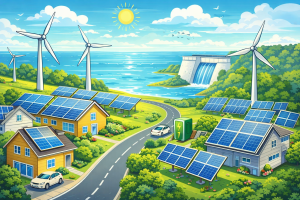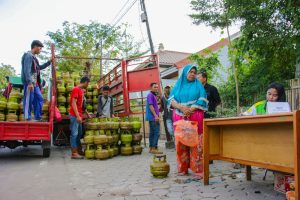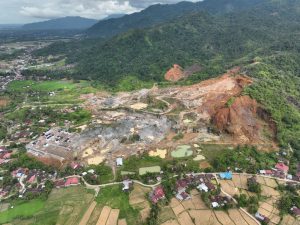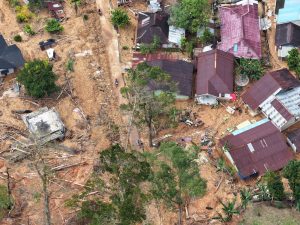Jakarta – Green investment can be a solution to save the Indonesian economy, including the food and energy crises that is currently engulfing the world. The Jakarta Investment Committee, Thomas Lembong revealed, Friday (28/6), that investment into Indonesia had stalled in 2020.
“It is understandable, this is the impact of the Covid-19 pandemic which has suppressed economic conditions throughout the country. The good news is, in 2021, investment has started to enter Indonesia, also green investment,” he said in an economic and business webinar.
Green investment that comes in is mostly into new and renewable energy (NRE). One of them is related to waste management and agricultural technology. Apart from reducing emissions, this is also expected to increase agricultural and livestock productivity.
Lembong said, although he hopes that green investment will grow in Indonesia, he is also worried that there will be a slowdown in capital inflows to Indonesia this year, in line with increasing global uncertainty and increasing global interest rates.
Separately, President Joko Widodo held a meeting with British Prime Minister Boris Johnson on the sidelines of the G7 implementation in Elmau, Germany. Minister of Foreign Affairs Retno Marsudi who accompanied President Jokowi in the meeting said that PM Johnson said that a roadmap for bilateral cooperation was already in place.
“With the roadmap in place, it will be easier to strengthen relations between the two countries,” said Retno in her statement, Tuesday (28/6). He said that President Jokowi and PM Johnson also agreed to strengthen cooperation in the fields of new and renewable energy (EBT) and food security.
The second largest biofuel energy sector to absorb labour
Biofuel energy is the second largest renewable energy sector in absorbing labour, after solar energy. Globally, the biofuel industry is estimated to employ approximately 2.4 million people.
Expert Staff of the Minister of Energy and Mineral Resources (ESDM) for Strategic Planning as Chair of the Energy Transitions Working Group (ETWG) Yudo Dwinanda Priaadi in an official statement, Friday (17/6) said that biofuels for the green economy will be an integral part in achieving the energy transition that is fair, equitable, and people-centered.
Biofuels also have a significant contribution to the achievement of the 2030 Sustainable Development Goals (SDGs) agenda, as well as related to carbon neutrality.
In Indonesia, the Mandatory Biodiesel Program in 2021 has produced around 16.3 million kilo liters. That number increased from 13.3 million kilo liters in 2020 during the Covid-19 pandemic. This figure in 2020 is even higher than in 2019 of 12 million kilo liters. The national biofuel program, added Yudo, will be enhanced by a green refinery program that takes a pilot project in Cilacap City, Central Java.
This first phase of the project will produce Hydrotreated Vegetable Oil (HVO) or green diesel, a second generation biofuel product from Refined, Bleached, and Deodorized Palm Oil (RBDPO).
In terms of innovative technologies, international cooperation and partnerships will strengthen more advanced technology development pathways for the biofuel industry, especially in emerging markets and emerging economies.
In addition, international partnerships in the biofuel economy will promote wider and sustainable use of biofuels in the transportation and other energy-related sectors, due to the significance of biofuels and other bioenergy sectors for energy and the economy in the future. (Hartatik)
Banner photo: Scharfsinn/shutterstock.com














